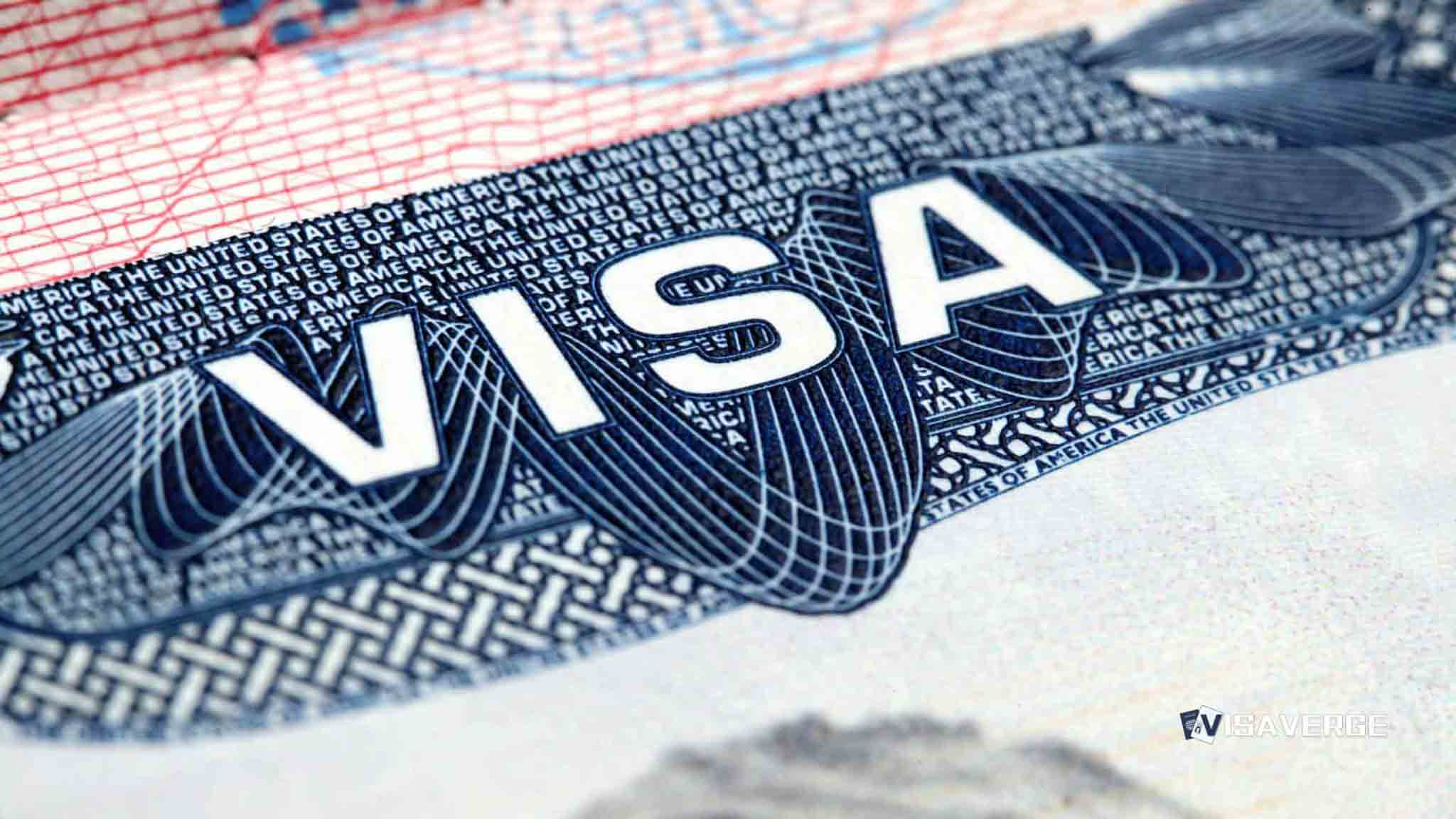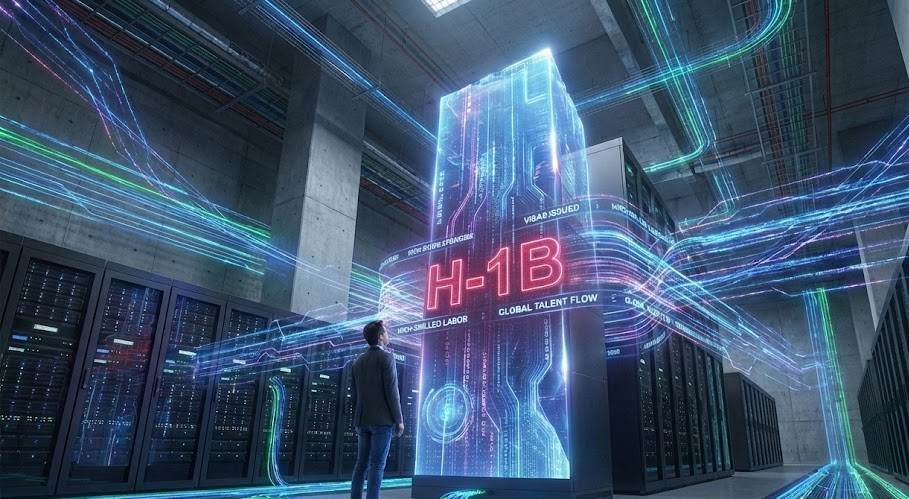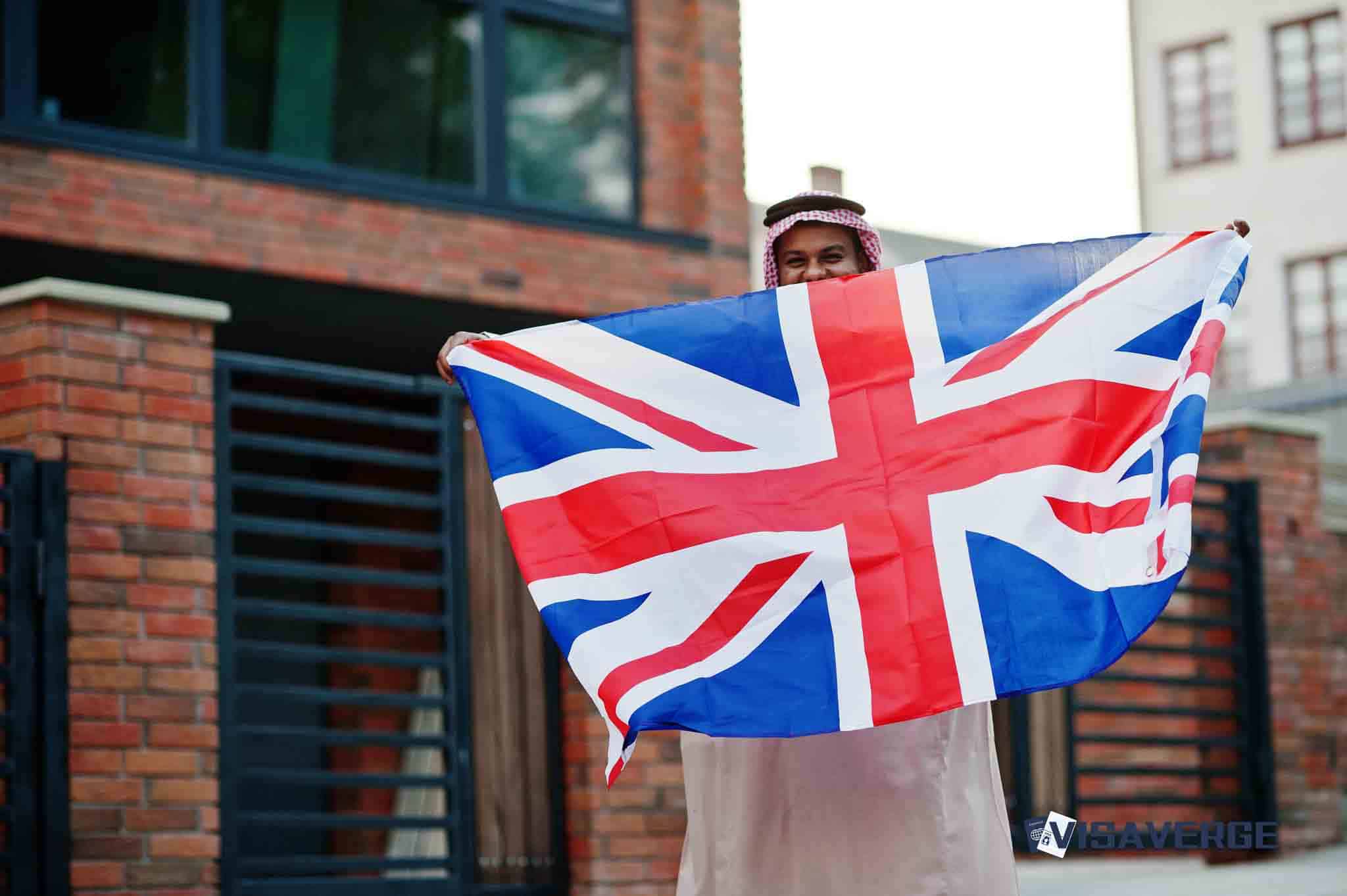Key Takeaways
• US canceled 2,000 Indian visa appointments in April, targeting agencies aiding illegal immigration.
• Indians received 72.3% of 386,000 H-1B visas in 2023, dominating the skilled worker program.
• H-1B Modernization Rule starts January 17, 2025, tightening eligibility and fraud prevention measures.
A recent move by the US government targeting Indian travel agencies accused of supporting illegal immigration has sparked fresh debate over the future of the H-1B visa program. Laura Loomer, a well-known supporter of President Trump, publicly demanded strict action against the H-1B system. This call comes at a time when both legal and illegal routes for Indian nationals entering the United States 🇺🇸 are under heavy scrutiny.
Let’s explore the details and possible changes affecting H-1B visas, the role of Indian travel agencies, and how these events tie into broader immigration trends and policies in the United States 🇺🇸.

US Action Against Indian Travel Agencies
Recently, the US State Department announced tough measures against several Indian travel agencies. These agencies, it says, have helped people bypass legal routes and enter the United States 🇺🇸 unlawfully. In April alone, the US Embassy in India canceled about 2,000 visa appointments due to concerns over possible fraud. Senior officials, owners, and leaders of the travel agencies believed to have played a part in these cases now face possible bans and further punishment.
According to State Department spokespeople, American diplomatic staff in India are actively working to identify and punish anyone involved in supporting unauthorized migration. These efforts are part of a bigger campaign to prevent visa fraud and clamp down on illegal entry to the United States 🇺🇸.
These actions have serious effects on travelers, travel businesses, and families seeking brighter futures in the United States 🇺🇸. With over 680 illegal immigrants already sent back to India since President Trump started his current term in 2025, the message is clear: authorities are taking a tougher approach to stop people from entering the country by illegal means.
Indian Migrants—A Large Group in US Immigration
Statistics show just how big this issue is. According to Pew Research, as of 2022, about 725,000 Indian nationals were living in the United States 🇺🇸 without proper papers. This places Indians as the third-largest group of unauthorized immigrants after Mexicans and Salvadorans. Many arrive believing the US provides better opportunities, but not everyone finds a path through legal channels. Some turn to Indian travel agencies promising shortcuts.
VisaVerge.com’s investigation reveals that while only some travel agents take part in illegal activities, concerns about widespread misuse are growing. By cracking down on those found helping people migrate illegally, US officials hope to set an example and discourage others from taking similar risks.
H-1B Visas: India’s Stake in the Program
While illegal pathways grab headlines, the discussion quickly turned to legal immigration—especially the H-1B visa. Inspired by the recent crackdown, Laura Loomer demanded on X (the platform previously known as Twitter) that officials, “Now do the H-1B visas,” calling for restrictions on the program she and others see as flawed.
The H-1B visa is a special permit that lets US companies hire skilled workers from other countries, especially in jobs needing a lot of training. These roles often include software engineers, scientists, health workers, and other technical experts. Because many US tech firms rely on foreign talent, the H-1B program is seen as a lifeline for innovation and economic growth.
Indians have the biggest share of H-1B visa recipients. In 2022, Indians received 77% of the 320,000 approved H-1B visas. In 2023, this figure was 72.3% of 386,000 visas. Almost three out of every four of these high-skilled visas went to Indian professionals. This strong presence shows the importance of the H-1B program to India’s role in America’s workforce, especially in the tech industry.
But critics argue that the system makes it too easy for companies to hire cheap labor from abroad, sometimes at the cost of US workers. Others accuse certain employers of using the program for their own benefit, rather than bringing in skills that are truly in short supply. The call to tighten H-1B rules is often linked to fears about jobs and wages for American citizens.
H-1B Program Details and Possible Changes
The H-1B visa system sets a fixed number of new visas each year. Right now, the cap stands at 65,000, with an extra 20,000 for those who studied for advanced degrees at American universities. Since demand always outstrips supply, the government uses a lottery system to pick who gets to apply each year.
The next H-1B lottery, for the financial year 2026, will run from March 7-24, 2025. Word of yet another fee hike—from $10 up to $215 per registrar—has made headlines, raising the cost for both employers and would-be workers.
Major changes are coming, too. The Department of Homeland Security will put the new H-1B Modernization Rule into effect starting January 17, 2025. This rule will make the standards for who qualifies as a “specialty occupation” clearer, seek to give people starting their own businesses a fairer shot, strengthen what is called “cap-gap” protections (letting students waiting for their H-1B approval stay longer), and bring in tougher checks to stop fraud.
Supporters, including elected officials like US Rep. Deborah Ross and local leaders such as Morrisville Town Council member Steve Rao, say these changes help businesses stay competitive. They highlight that US companies, especially in tech, often cannot find enough local workers with the right skills. The H-1B visa, they argue, fills this gap and should not be harmed by single incidents of fraud or abuse.
However, President Trump’s strong supporters, including Laura Loomer and many others from MAGA circles, continue to push for what they call an end to the “H-1B scam.” They argue more should be done to prevent any misuse and to protect American jobs.
Trump Administration’s Immigration Direction
Since President Trump’s return to office in 2025, the US government’s policies on immigration have taken a firmer line. The administration has brought in steps to:
- Remove more noncitizens from the United States 🇺🇸, using new powers and faster processes
- Urge local and state governments to help federal authorities with immigration checks
- Put tighter rules in place for humanitarian programs, making it harder to claim relief
- Build stronger borders, with more physical security and tech tools
President Trump’s approach is strict and puts an emphasis on the safety of the country, along with protecting American jobs. As these policies gain more attention, supporters see them as necessary for law and order, while critics warn of the harm to family unity and America’s tradition of welcoming newcomers.
The attention given to Indian travel agencies and the calls for more H-1B visa restrictions show how immigration policy and enforcement have become closely tied together in public debates. For Indian professionals and families dreaming of work in the United States 🇺🇸, these debates bring uncertainty and worry.
Effect on Indian Travel Agencies and Migrants
For Indian travel agencies, these sanctions can be devastating. Agencies that follow the law are facing more skepticism and stricter checks. Some travelers fear that legitimate services might be delayed or denied because of the actions of a few bad actors.
Capacity at the US Embassy in India is already under stress, with thousands of appointments canceled in a matter of weeks. This creates longer wait times for Indian students, job-seekers, business visitors, and families wishing to reunite.
For those using illegal channels, the risks are now greater than ever. Deportations are rising, and punishment for those caught helping in unlawful migration is getting tougher.
H-1B and US Employers: What’s at Stake?
The possible impact of new H-1B restrictions would be felt far beyond Indian applicants. Many US companies—not just tech giants—depend on foreign workers to fill roles they struggle to fill locally. Reducing access to skilled talent could slow innovation and reduce competitiveness, especially as other countries try to attract the same workers.
For many immigrants in the United States 🇺🇸 on H-1B visas, this program is not just about a job—it’s a path to long-term residency and, eventually, citizenship. Uncertainty about the program’s future discourages skilled people from choosing America, and some may decide to move to other countries instead.
Some American lawmakers and business leaders stress that, rather than close doors, the country should fix loopholes while keeping opportunities open for the best minds and hard workers worldwide.
Ongoing Debate: Fairness, Security, and Opportunity
The debate over the H-1B visa, Indian travel agencies, and tightening immigration policy shows no signs of slowing. Many people agree that fraud should be tackled; few support outright bans or changes that would block hard-working, talented migrants from coming to the United States 🇺🇸.
Fairness—ensuring all applicants are treated equally and by the rules—is a key theme. At the same time, security and protecting US interests remains a top concern for the current administration and its closest supporters.
Debates within both parties and in public life continue to shape how programs like H-1B work, who can use them, and under what conditions.
Official Information
For anyone directly involved with the H-1B process—as an applicant or an employer—it’s vital to stay updated on rules and deadlines. The US Citizenship and Immigration Services (USCIS) H-1B program page has the latest, official information about how to apply, annual lotteries, and requirements for specialty occupations.
Looking Ahead
As the United States 🇺🇸 enters another period of debate over immigration, the fate of Indian travel agencies, H-1B visa holders, and future applicants remains uncertain. President Trump and his allies are determined to show tough action, both to curb illegal routes and to possibly tighten legal channels like the H-1B. Calls by figures such as Laura Loomer reflect the tensions within the country about who should be allowed to work—and stay—in America.
On the other hand, many business and elected leaders argue that smart, fair, and flexible policies can protect US interests while still giving room for those who can help America grow.
For now, those affected—Indian professionals, students, travel businesses, and US companies—wait to see how these competing pressures will reshape America’s approach to immigration.
In a world where borders are closely watched and fraud is punished, but opportunity remains a core American value, the challenge will be to balance security with openness. To learn more about changes and requirements for the H-1B visa, applicants should always refer to official government sites and respected sources like VisaVerge.com for continued updates and analysis.
Learn Today
H-1B visa → A US work permit allowing skilled foreign workers in specialty jobs like tech and science.
Visa lottery → A random selection process used when H-1B visa applications exceed annual government limits.
Cap-gap protection → Policy allowing students to stay in the US while transitioning from student to H-1B status.
Illegal immigration → Unauthorized entry or residence in a country by bypassing legal immigration controls.
H-1B Modernization Rule → New 2025 rule clarifying specialty occupation criteria and enhancing fraud prevention for H-1B visas.
This Article in a Nutshell
The US targets Indian travel agencies aiding illegal immigration, prompting calls to reform H-1B visas. Indians hold over 70% of H-1B visas, crucial for US tech. New rules in 2025 seek fraud control but spark debate on legal immigration’s future.
— By VisaVerge.com
Read more:
• Tata Consultancy wins dismissal of H-1B visa fraud lawsuit in US
• Modernized Cuba E-Visa to Replace Tourist Card for International Travelers
• UK Visa Rules threaten to worsen care worker shortages
• Africans lose millions to denied visas for Europe in 2024
• Congressional Leaders Demand Faster Visa Process for World Cup







